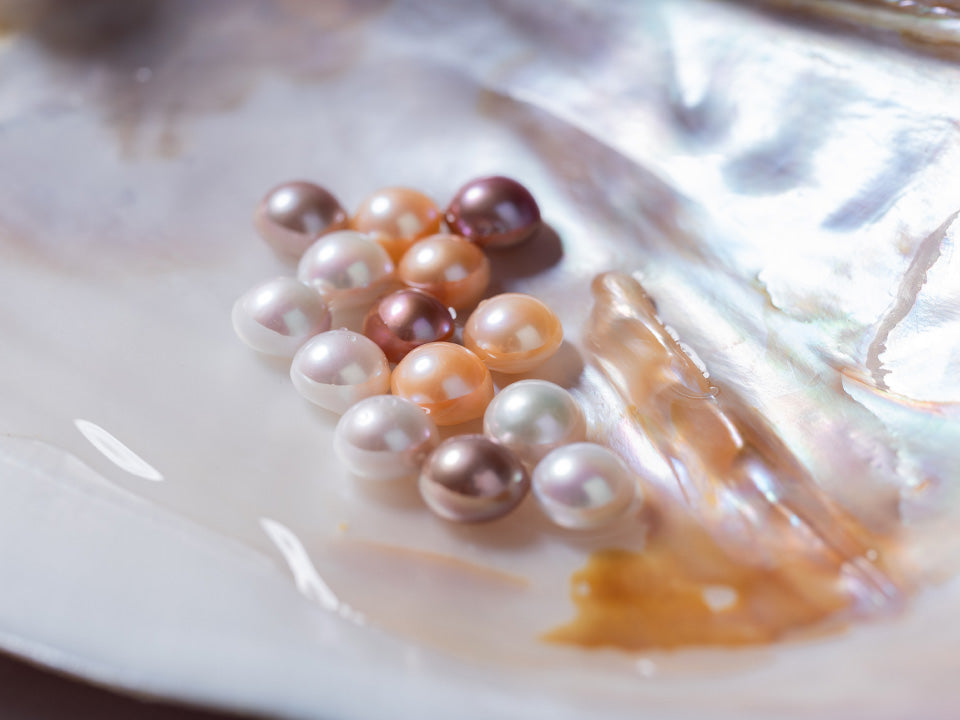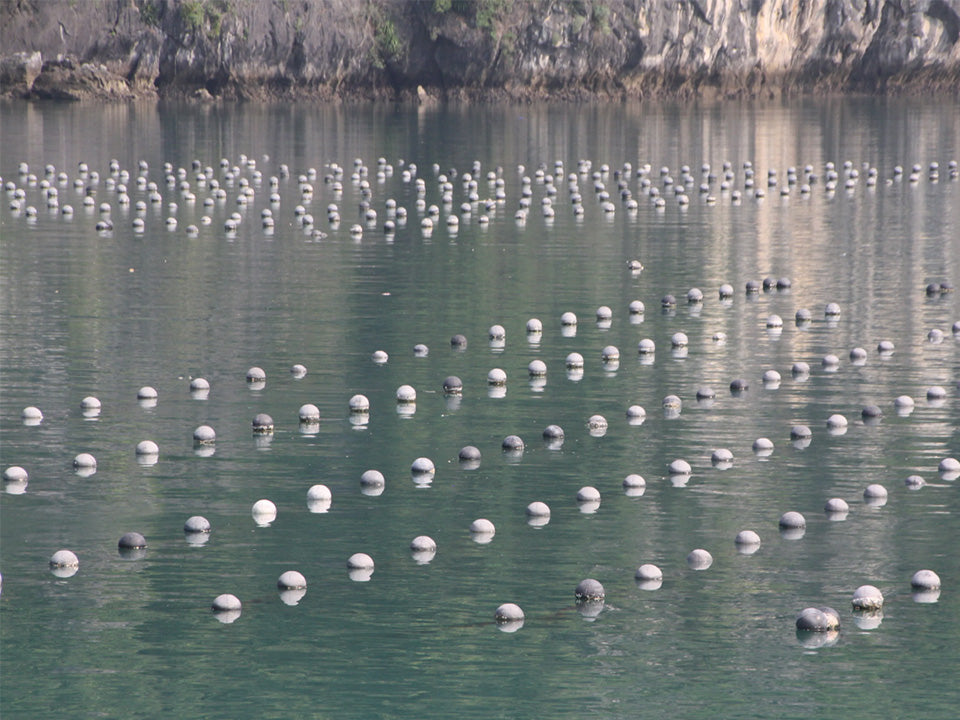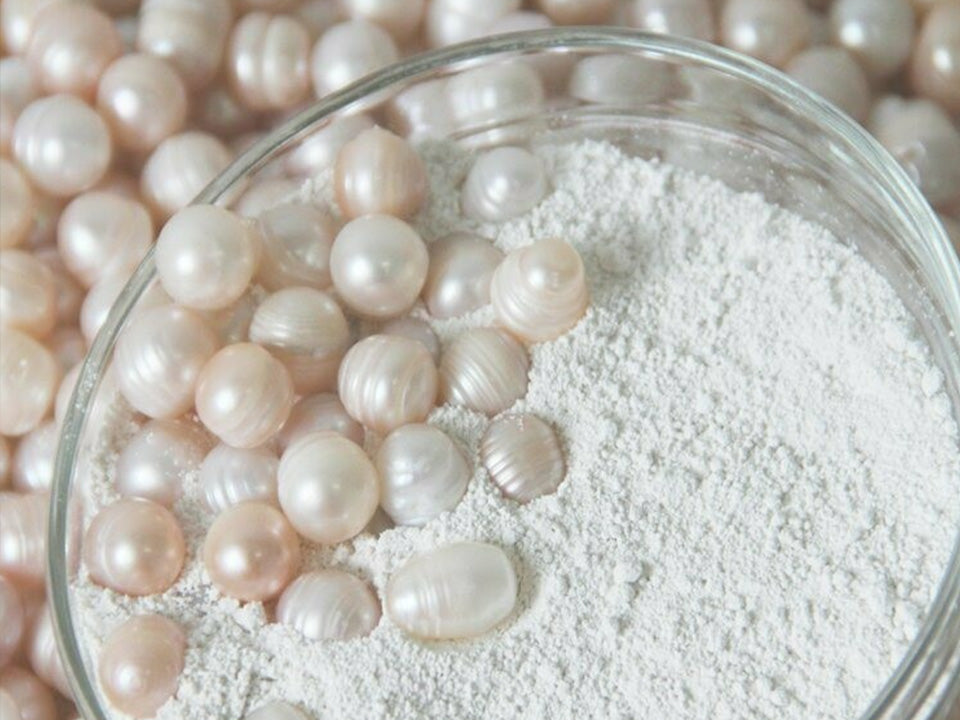Pearl Sustainability
The pearl industry is subject to the regulations of Mother Nature.
Ensuring the preservation of ecosystems is essential for the production of exquisite pearls, as the well-being of pearl oysters and mussels relies on a harmonious and flourishing ecosystem that provides them with the necessary nutrients and high-quality water for optimal growth. This balance is pivotal in the creation of cultured pearls of exceptional quality. Embracing sustainable farming practices enables the proper care of pearl-producing mollusks throughout their lives, benefiting not only the environment but also enhancing the quality of the pearls they yield. By developing innovative methods to cultivate pearls in an environmentally conscious manner, we ensure the continuity and prosperity of this valuable source of income.
To further emphasize the commitment to sustainability, every part of the pearl oysters and mussels is utilized. The shells are repurposed for various art and craft materials, as well as construction materials. Additionally, the mussel meat is utilized as a valuable food source or organic fertilizer for other agricultural purposes. Moreover, the pearls themselves have diverse applications, including their use in cosmetics, medicine, and even toothpaste ingredients. By maximizing the utility of every component, pearl farming operations are not only economically viable but also environmentally responsible.

Pearl Cultivation Practices
We recognize that oysters, the remarkable creators of pearls, rely on pristine water conditions to produce these exquisite gems. Polluted water harms oysters' health and pearl quality as they are filter feeders, extracting food from the surrounding water by straining tiny organisms and particles.
Therefore, the cleanliness of the water is paramount for the health and well-being of oysters, directly influencing their growth and their ability to form pearls. We prioritize maintaining optimal water quality, providing oysters with proper nutrition, and implementing best practices for their care, all to safeguard their well-being and promote the sustainable production of pearls.
Pearl Farming Techniques
We source from pearl farms that employ natural methods to maintain the health and well-being of the oysters or mollusks, such as regular cleaning and monitoring to prevent the buildup of harmful organisms. They employ natural feeding methods and organic or locally sourced feeds, reducing the reliance on artificial feeds that may contain harmful ingredients.


Waste Management
The pearl industry is increasingly embracing sustainability by adopting a comprehensive approach that utilizes every part of the mussel, thus minimizing waste. The shells, often overlooked, are repurposed for art, craft, and construction materials, the mussel meat is utilized as both a nutritious food source and a natural fertilizer, low-quality pearls, which would traditionally be disregarded due to their imperfections and lower market value, by grinding the pearls into a fine powder, it can be utilized in various applications, including medical treatments, cosmetics, and skincare products, promoting resourcefulness and reducing environmental impact. further enhancing the efficiency of the process.
This sustainable practice aligns with the principles of the circular economy, by embracing the full potential of each component, the pearl industry takes a significant step towards a more sustainable and responsible future.



